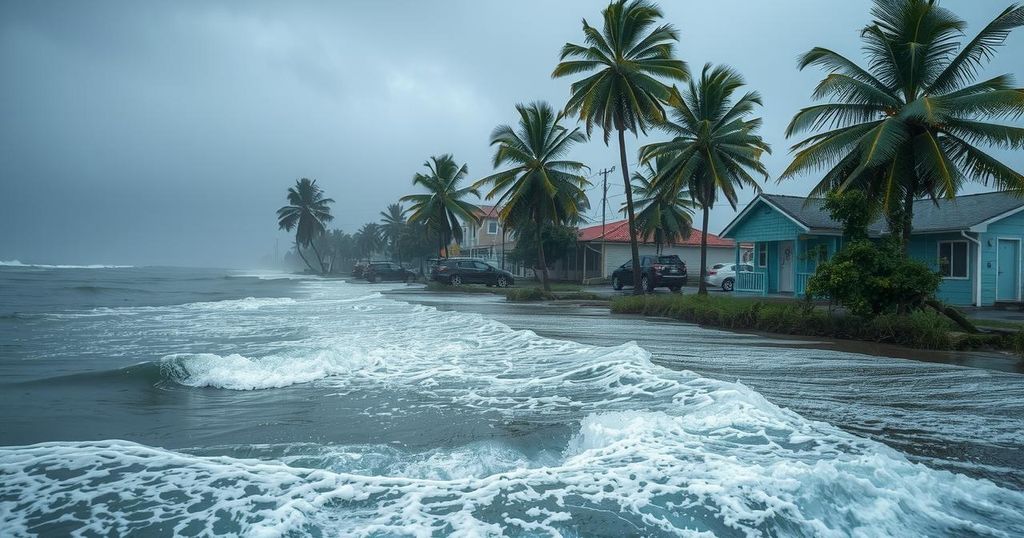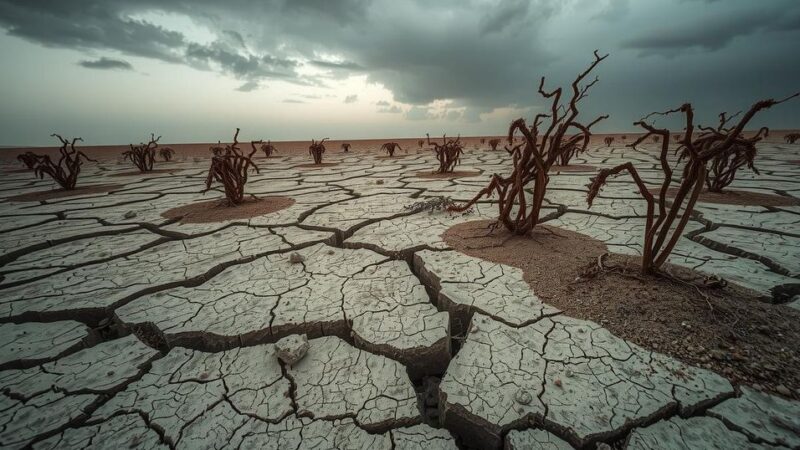On 15 December 2024, Tropical Cyclone Chido devastated northern Mozambique, affecting 174,000 individuals with 34 fatalities and 319 injuries reported. The cyclone destroyed over 35,000 homes and heavily damaged critical infrastructure. The agricultural sector suffered extensive losses, exacerbating existing vulnerabilities in the region. Urgent humanitarian assistance is needed to aid recovery and prevent further health crises.
On 15 December 2024, Tropical Cyclone Chido struck the district of Mecufi in Cabo Delgado Province, Mozambique, unleashing devastating winds exceeding 120 km/h and heavy rainfall surpassing 250 mm within just 24 hours. The cyclone wreaked havoc upon several provinces, including Cabo Delgado, Nampula, and Niassa, while the northern regions of Tete and Zambézia felt secondary consequences. As reported by the National Institute for Disaster Management and Risk Reduction (INGD) by 17 December, the cyclone had affected approximately 174,000 individuals, resulting in 34 fatalities and 319 reported injuries.
The cyclone obliterated over 35,000 homes and critically damaged essential infrastructure, including schools, health facilities, and water systems, leaving communities vulnerable and displaced. Cabo Delgado’s ongoing conflicts and a cholera outbreak have been further complicated by this disaster. In the districts of Mecufi and Chiure, damage has been virtually total, with health services rendered ineffective and all homes affected. The agricultural sector has similarly suffered significant losses, with thousands of hectares of critical crops such as maize, beans, sesame, and cassava destroyed.
In the neighboring districts of Memba and Erati in Nampula Province, more than 3,600 families have experienced substantial losses, particularly regarding their fishing assets and livelihoods. The cyclone has not only devastated infrastructure but has escalated the risk of waterborne diseases, particularly cholera, due to compromised water and sanitation systems. The overall disruption of communication and power networks hinders humanitarian efforts and response. Given that over 80 percent of Mozambicans depend on agriculture for food and income, immediate and substantial assistance is imperative for the affected households to restore their livelihoods and access to nutritious food.
Tropical Cyclone Chido, which made landfall on 15 December 2024 in Mozambique, represents a significant humanitarian challenge for the region. The cyclone’s ferocity, with wind speeds reaching 120 km/h and rainfall totals over 250 mm, has led to widespread destruction, particularly in the northern provinces of Cabo Delgado, Nampula, and Niassa. The cyclone arrived at a time when these regions were already grappling with vulnerabilities related to conflict-induced displacement and a cholera outbreak, emphasizing the dire need for humanitarian aid and disaster recovery efforts.
In summary, Tropical Cyclone Chido has inflicted severe devastation on northern Mozambique, with significant loss of life, displacement, and destruction of agricultural resources. The immediate need for humanitarian assistance is critical to help communities rebuild their lives, restore livelihoods, and prevent the potential outbreak of waterborne diseases. Such urgent action is paramount given the reliance of over 80 percent of the population on agriculture for sustenance and economic stability.
Original Source: reliefweb.int







